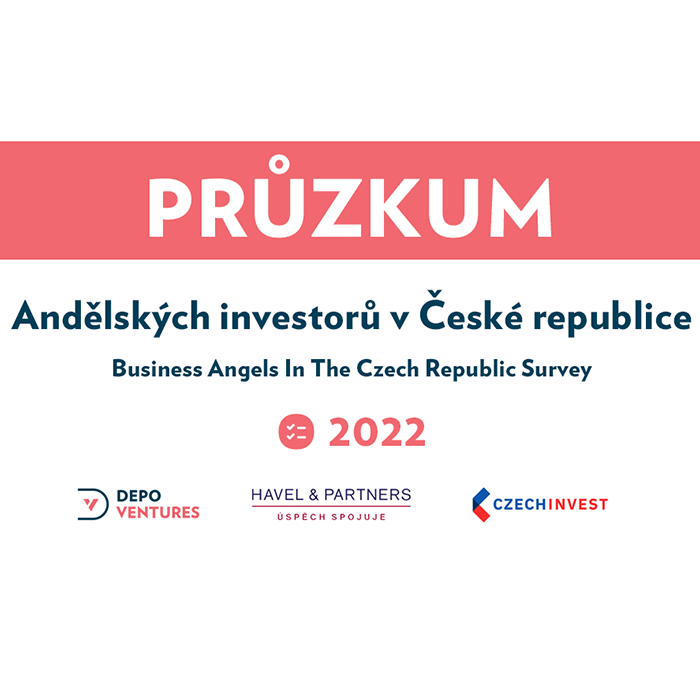The Czech Republic still lags behind Western European countries in the number of startups per capita. But there is no shortage of ideas. Moreover, DEPO Ventures research shows that the appetite of angel investors to back viable ideas is growing. However, without financial support, mentorship and access to networks of contacts, startups can hardly move on from the early stage.
“Sharing know-how, investment opportunities and building awareness of how angel investing works is one of the basic building blocks for the further development of this segment in our country,” says Petr Kopeček, Director of the Startups Department at the CzechInvest business support agency.
DEPO Ventures
A company that builds an international network of angel investors with a focus on cross-border investments and syndications. It runs funds with investors who get involved and help a portfolio of startups grow. “Successful founders support the creation of new startups, just like they used to in Estonia. The more successful startups there are, the more angel investors there will be,” adds Petr Å Ãma, partner at DEPO Ventures.
Back to the survey
Roughly two-thirds of investors surveyed said they plan to invest at the same level this year (38 percent), 16 percent of investors plan to invest significantly more, and 13 percent of investors surveyed plan to invest less than last year.
Roughly two-fifths of investors (41 percent) consider the performance of startup investments to be superior or identical to other asset classes.
The majority of respondents in the survey report that they do not have a favourite location for investment. They either have the whole world in their sights, or they don’t address where the startup operates. However, only the Czech Republic is still the focus of a quarter of them (31 per cent). “A broader scope would allow them to access global opportunities and increase their chances of better diversifying their portfolio,” Šíma notes.
The most invested areas are AI (54 percent), fintech (48 percent) and healthtech (35 percent). However, the different sectors are mostly evenly covered. Investors usually do not focus on one segment, but diversify massively. “Given the situation on the blockchain market, it is not surprising that last year interest in startups that focus on blockchain technology dropped sharply (by 15 percentage points),” Šíma points out.
Approximately 40 percent of investors have already exited some of their investments, up more than 10 percentage points from last year Almost 86 percent of them sold their shares at a profit. Most often (51.4 percent) the investment was evaluated one to five times.
Angel investor
“I was pleased to see that more and more investors are joining investor communities and networks, such as our DEPO Angels. In the survey, that’s more than half (56 percent to be exact). This approach is understandable, because investing is challenging and cooperation with other investors may be the right way to go,” says Šíma.
There are also more and more female investors every year. Although they are still in the minority, in the current survey they totalled 17 per cent, seven per cent more than in 2021.
The most common motive for investing for respondents is the desire to multiply finances, followed by the motivation to meet interesting people and support innovation. They spend an average of five years in this investment asset and two-thirds of them spend 0-5 hours per week on investments.
Their average investment is between 25 and 50 thousand euros (600 thousand to 1.2 million crowns), more than a quarter of respondents invest more than 100 thousand euros (2.4 million crowns) per startup company. Contrary to the general rule of thumb about the high percentage of failed startups, the survey suggests that investments have so far mostly ended in success.
A quantitative research survey aimed at mapping angel investing in the Czech Republic was carried out in the form of an online questionnaire on a sample of 140 respondents. The questionnaire was sent to angel investors in the Czech Republic and to investors who do not invest in startups. Data collection took place during February and March 2023.




